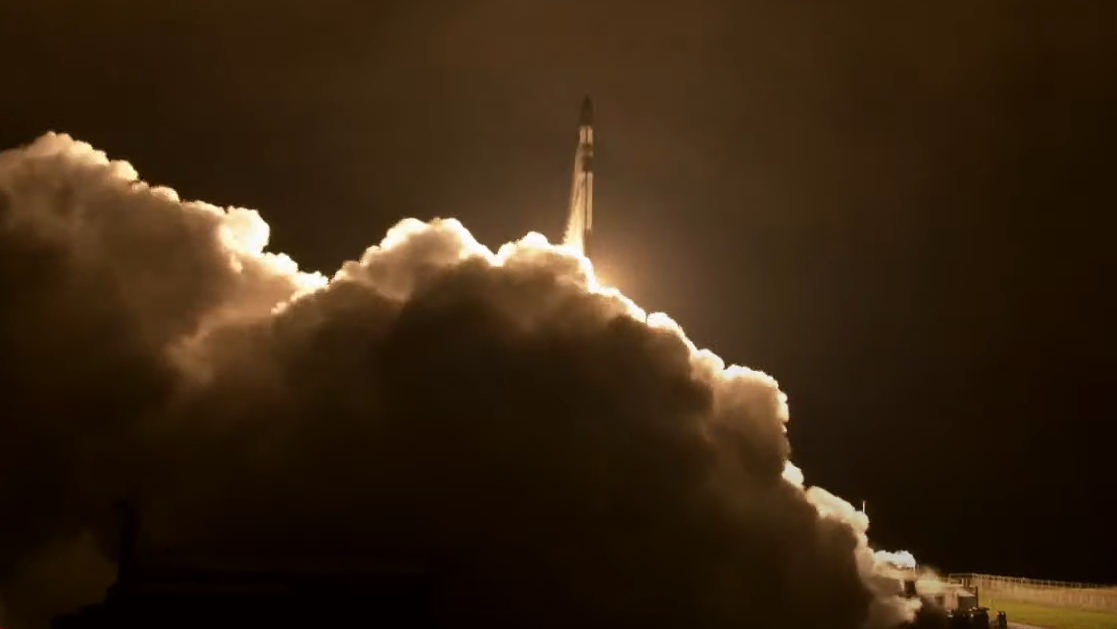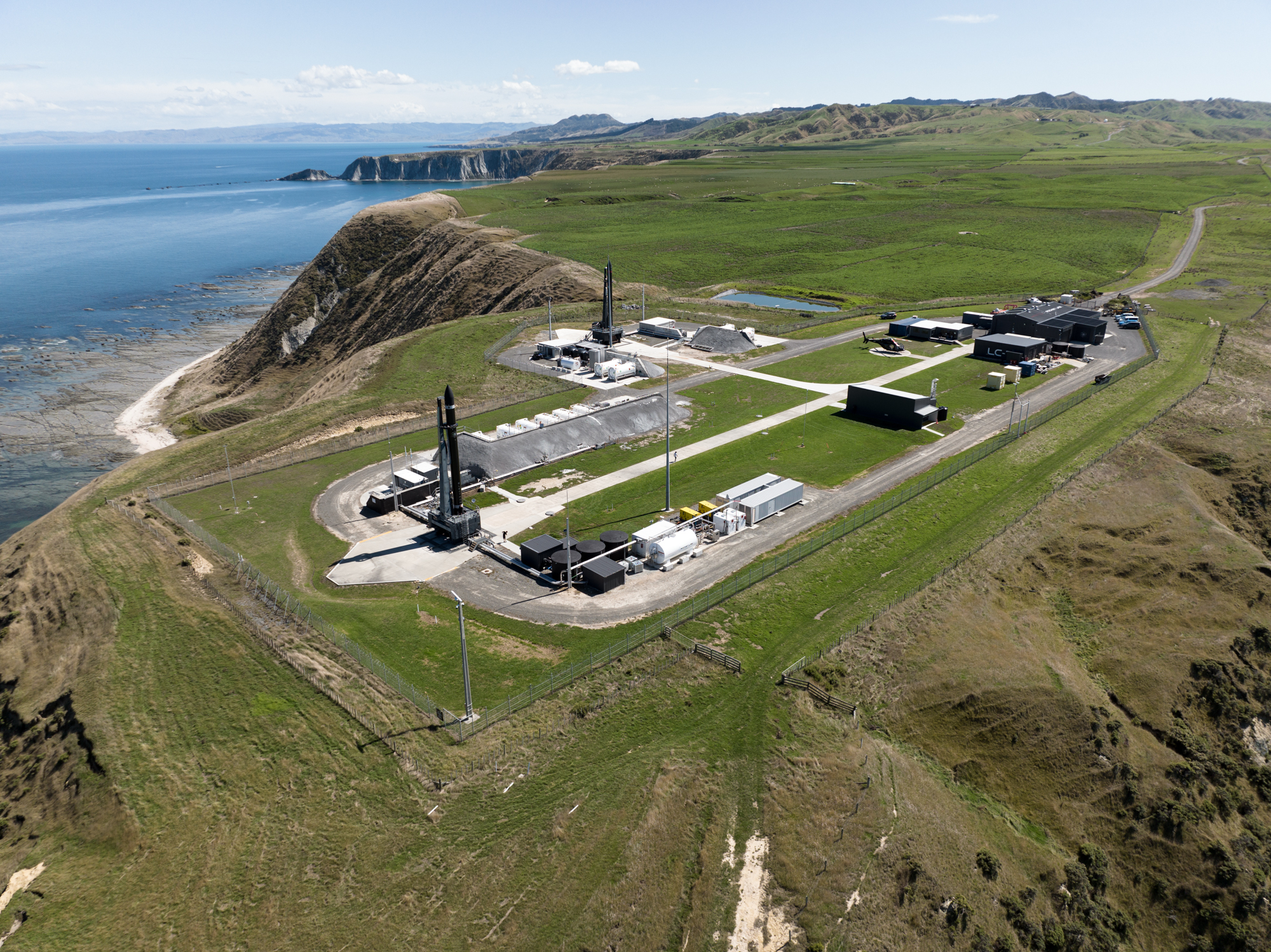Rocket Lab launches 2 BlackSky Earth-observing satellites into orbit
The mission expands the satellite fleet of BlackSky Global to 14.
Rocket Lab just sent two more private Earth-observation satellites skyward.
A Rocket Lab Electron launcher lifted off Saturday (April 2) at 8:41a.m. EST (1241 GMT) from the company's Launch Complex 1 on New Zealand's Mahia Pensula. The local time was 1:10 a.m. Sunday morning at the launch site.
The two-stage Electron rocket carried two spacecraft for the Virginia company BlackSky. They were successfully deployed about 40 minutes after liftoff.
"Payloads deployed another 100% mission success by the team," Rocket Lab CEO Peter Beck wrote on Twitter after the successful launch.
Related: Rocket Lab and its Electron booster (photos)
Rocket Lab, which dubbed this launch "Without Mission A Beat," did not attempt to recover the Electron's first stage during this launch. (Eventually, Rocket Lab plans to use a helicopter to pluck falling Electron first stages out of the sky; it has already done ocean booster recoveries on several previous missions.)
BlackSky and Rocket Lab are long-time partners, as Electrons have delivered most of BlackSky's constellation to orbit since 2019. Saturday's mission was arranged for BlackSky by the launch services provider Spaceflight Inc.
Breaking space news, the latest updates on rocket launches, skywatching events and more!
"BlackSky’s proprietary constellation has one of the highest hourly revisit rates in the world, providing customers with persistent monitoring and change detection over areas of economic activity across the globe," Rocket Lab said in its "Without Mission a Beat" press kit.
BlackSky satellites are used by government agencies along with a set of large companies known as the Global 2000, according to Rocket Lab. The platform for BlackSky, called Spectra AI, uses artificial intelligence techniques to automate the detection of fast-changing information for its customers.
"BlackSky is supporting critical day-to-day decision-making across a range of applications that include homeland security, supply chain intelligence, crisis management and response, critical infrastructure and economic intelligence," Rocket Lab stated.
BlackSky is also one of the companies that has been helping the world monitor the ongoing Russian invasion of Ukraine, which began on Feb. 24.
"Without Mission A Beat" will deliver two @blacksky_inc payloads to low Earth orbit, building their constellation to 14 sats - the majority of which were deployed by Electron across missions from 2019.Launch window opens April 02 UTC, 12:10. More info: https://t.co/qMbrht2edH pic.twitter.com/g6k4DSjI3EMarch 31, 2022
Rocket Lab has announced some upcoming missions, including one scheduled for the second quarter of 2022 that will send three demonstration satellites aloft for the company E-Space.
"E-Space aims to reduce the launch requirements for a full constellation to months instead of years — decreasing the time it takes to scale, replenish or deliver a full system," Rocket Lab stated of the recently announced contract.
Rocket Lab also plans launches on behalf of Earth imaging company Synspective, for Internet of Things satellite provider Kinéis, and for government customers like NASA and the U.S. National Reconnaissance Office. Other future missions are focused on orbital debris mitigation and Venus exploration, according to Rocket Lab's manifest.
Saturday's launch took place just weeks after Rocket Lab announced it will build its next-generation Neutron rocket on Wallops Island, Virginia, near the company's coastal U.S. launch pad. (The company also debuted a new, second launch pad at its New Zealand site on Feb. 28, with a successful liftoff of an Electron booster.)
Neutron, which will be reusable, will send larger payloads to orbit than Electron. Rocket Lab has said the bigger Neutron rocket will heft larger sets of satellites into orbit, along with fuel-hungry interplanetary missions and potentially, even human missions. Neutron's planned first launch is in 2024.
Follow Elizabeth Howell on Twitter @howellspace. Follow us on Twitter @Spacedotcom or Facebook.

Elizabeth Howell (she/her), Ph.D., was a staff writer in the spaceflight channel between 2022 and 2024 specializing in Canadian space news. She was contributing writer for Space.com for 10 years from 2012 to 2024. Elizabeth's reporting includes multiple exclusives with the White House, leading world coverage about a lost-and-found space tomato on the International Space Station, witnessing five human spaceflight launches on two continents, flying parabolic, working inside a spacesuit, and participating in a simulated Mars mission. Her latest book, "Why Am I Taller?" (ECW Press, 2022) is co-written with astronaut Dave Williams.


